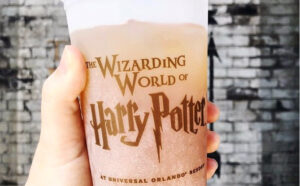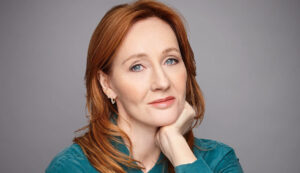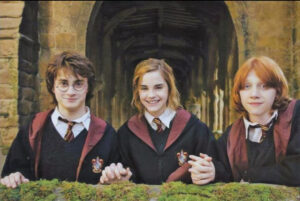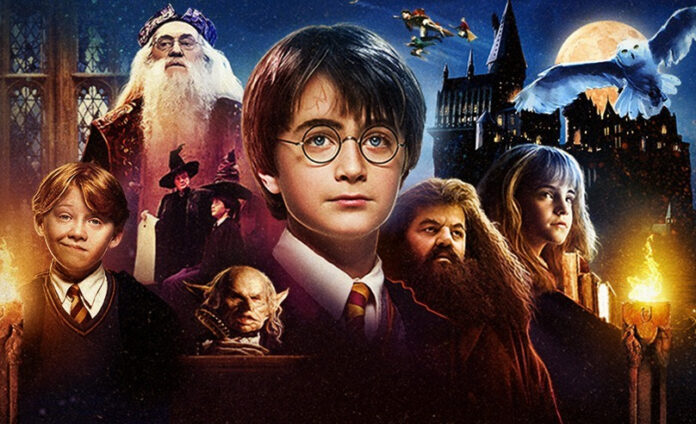In a world where the line between the creator and their creation has become increasingly blurred, the beloved Harry Potter franchise finds itself at a crossroads. The enchanting universe conjured by J.K. Rowling has woven its magic into the hearts of millions, but the author’s continuing anti-trans remarks have cast a shadow over this realm of wonder. As fans and industry insiders grapple with the complex debate of art versus the artist, the future of Harry Potter remains shrouded in uncertainty. What is the future for the Wizarding World, and will it ultimately be snowed under by controversy?
J.K. Rowling, celebrated for her literary prowess in creating The Wizarding World, ignited a firestorm of controversy when she retweeted an opinion piece on June 6, 2020, that discussed “people who menstruate.” Clearly wishing the piece had used the word “women”, Rowling wrote, “‘People who menstruate.’ I’m sure there used to be a word for those people. Someone help me out. Wumben? Wimpund? Woomud?”
Since then she has garnered significant condemnation and attention with frequent additional comments on gender identity and trans rights, and these attitudes have lead to closer examinations of the racial stereotypes and lack of diversity in her novels. These tweets and the unveiled issues around anti-semitism and other prejudices have visibly clashed with the inclusive values that the Harry Potter series has long championed, and in turn this schism has led to fervent debates about whether it is possible to separate an artist’s personal beliefs from their creative work.
Art vs. Artist

The ongoing discourse surrounding the Harry Potter franchise mirrors a broader societal conversation about the ethical implications of supporting art created by individuals with controversial views. Critics argue that consuming such art perpetuates harmful ideologies, while proponents contend that appreciating a creative work should not hinge on the creator’s personal beliefs. As media consumers, we find ourselves grappling with the question: Can we enjoy the magic of Harry Potter while acknowledging the real-world missteps of its creator?
The answer from the entertainment industry seems to be a resounding, “Yes!”. Since the release of the initial Harry Potter books and movies various entities have built themeparks, released a triple-A Harry Potter video game called “Hogwarts legacy“, and the Fantastic Beasts series is on three completed movies. A new Harry Potter TV series by HBO is even on the horizon.
Warner Bros, the studio behind the iconic film adaptations, has, however, issued a statement reaffirming its commitment to diversity and inclusion and promising that future projects will be more diverse despite the author’s perceived biases. The studio’s upcoming projects, including the much-anticipated “Fantastic Beasts 4,” have been met with both enthusiasm and scepticism from fans and critics alike.
But this hasn’t all come without controversy. Avalanche Software and Warner Bros saw an enormous backlash over their release of “Hogwarts Legacy,” with many calling for a boycott of the game. In the end, Game developers distanced themselves from the author’s remarks, emphasizing their commitment to fostering an inclusive gaming experience and even included a trans character, Sirona Ryan, a barkeep at the Three Broomsticks in Hogsmeade. The result? Hogwart’s legacy sold over 15 million copies and accrued in excess of R20-billion.
The Role of Fandom and Activism

As fans grapple with reconciling their love for the wizarding world with Rowling’s polarizing views, a vibrant movement is emerging – one that seeks to create an inclusive and transformative space while honouring the essence of the beloved series.
Fueling the discourse are Harry Potter enthusiasts who are diligently working to extricate the art from the artist, drawing inspiration from a mosaic of perspectives.A burgeoning online community has sprouted wings with various reddit threads and other forums discussing ways to champion trans rights while nurturing their attachment to the whimsical realm. These virtual spaces serve as cauldrons bubbling with creativity, concocting fanfiction that subverts the original narrative, introducing characters of various genders and orientations.
These efforts are backed by the majority of the actors from the phenomenally successful movie series who have come out in support of trans rights. Daniel Radcliff, who played the titular role in all eight Potter films, is an outspoken advocate for the LGBTQ+ community and referenced his work with The Trevor Project in an essay condemning Rowling’s June 2020 tweets.
“Transgender women are women. Any statement to the contrary erases the identity and dignity of transgender people and goes against all advice given by professional health care associations who have far more expertise on this subject matter than either Jo or I,” he wrote, before speaking directly to fans of the series impacted by Rowling’s remarks. “If you found anything in these stories that resonated with you and helped you at any time in your life—then that is between you and the book that you read, and it is sacred.”
Ongoing support

Among the others who have actively spoken out include Evanna Lynch, who played Luna Lovegood, Emma Watson, whose character Hermione Grainger is a lynchpin of the series, Bonnie Wright, the actress who portrayed Ginny Weasley, Rupert Grint, who played Harry’s best friend Ron Weasley, and Emma Thompson who played Professor Sybill Trelawney.
In her response, Katie Leung, who played Cho Chang, directed fans to channels that support Black trans women. “So, you want my thoughts on Cho Chang? Okay, here goes…(thread),” she said, before posting a thread to various funds supporting black trans people and the Black Lives Matter movement.
Simultaneously, fandom-driven initiatives are gaining traction in the physical realm. Annual fan conventions, once a celebration of the magical world’s allure, have evolved into platforms for open dialogue. Panels dissect Rowling’s influence on literature, accompanied by discussions on the responsibilities of creators to their audiences.
Nevertheless, navigating this uncharted terrain remains complex. While some fans are eager to embrace the franchise’s evolution, others grapple with the unease of venerating a work tied to a creator with objectionable views.
In the twilight of Harry Potter’s legacy, a new chapter unfolds, one coloured by the determination of fans to transmute a beloved universe into a crucible of inclusivity and empowerment. As these devotees continue to etch their mark upon the pages of the wizarding world, their journey exemplifies a quintessential lesson from the series itself: the ability to embrace change and forge a path forward, even when faced with formidable challenges.


